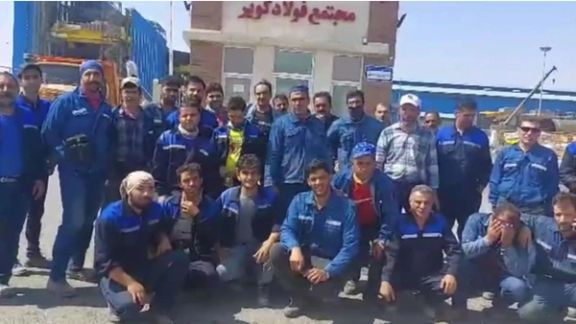Iran's Oil and Gas Workers' Strike Grows: 20,000 Workers, 110 Companies

A nationwide strike by contract workers in Iran's oil and gas industry that began last week has now spread to over 110 companies, involving more than 20,000 workers.

A nationwide strike by contract workers in Iran's oil and gas industry that began last week has now spread to over 110 companies, involving more than 20,000 workers.
Launched by the unofficial Council for Organizing Oil Contract-Workers' Protests, the strike began on June 19. The workers are demanding the removal of intermediary contractors, wage increases, a 14-days-on, 14-days-off work schedule, improved dormitory conditions, and enhanced safety measures. The Council has warned that the strikes will intensify if these demands are not met.
Last week, the strike included 8,000 oil contract workers from over 60 contracting companies.
With the number of strikers now at 20,000, the protest action is rapidly gaining momentum.
These protests are part of a wave of labor unrest in Iran over delayed wages, low pay, and layoffs that have intermittently disrupted many industrial sectors since 2018.
In the past decade, many components of the oil and gas industry have been farmed out to influential regime insiders as intermediary contractors, who underpay workers and force them to work in difficult conditions. Traditionally, oil workers enjoyed the best salaries and benefits in Iran.